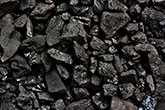China introduces coal import regulations
China will ban the import and local sale of coal with high ash and sulfur content, in a bid to tackle air pollution and support the domestic Chinese coal sector.
As World Coal previously reported, Beijing has faced calls from Chinese coal miners to support the domestic industry, as they see widespread losses due to oversupply and anaemic demand for coal.
The Chinese government has also been keen to paint a picture of itself as environmentally conscious, with a view to reduce use of so called ‘dirty’ coal. The country has also looked to reduce the amounts of smog and pollution that often suffocates major Chinese cities.
Under the new regulations, the use of coal with ash content higher than 16% and sulfur content above 1% will be restricted in the main Chinese population centres of the country from 1 January 2015.
There will be a ban on mining, sale, transportation and imports of coal with ash and sulfur content exceeding 40% and 3% respectively. For coal that will be transported for more than 600 km from production site or receiving port, the ash content limit will be 20%.
There have been fears voiced in Indonesia and Australia that these new regulations could have severe financial repercussions.
According to The Guardian, Australia exports around 50 million tpa of thermal coal to China and the ban could “reduce exports by 40%, a cost of US$ 1.46 billion at current market prices of US$ 73/t”.
John Rolfe, resources economist at Central Queensland University, said the restrictions will be a “big deal” for mining operations in Australia.
“These standards are higher than the bulk of Australian coal currently meets,” he said. “It will affect 40% of our supplies to China. If it knocks out 40% of the market, other suppliers that can meet the ash requirement will take up the supply and our companies will bid for contracts left behind – perhaps India and some other east Asian markets.”
The Daily Mail, meanwhile, goes further in raising fears over the ban, suggesting half of Australia’s coal exports will be hit – as a cost of US$ 4 billion.
The fear in Australia is that 80% of the country’s exports of coal to China is expected to exceed the sulfur and ash content limits, according to Wood Mackenzie.
Yet other analysts are less pessimistic. In a column for Reuters, Clyde Russel says it “seems far more likely that the impact will be minimal, but not non-existent, as the new rules will lead to changes in the composition of coal China imports.”
Russell argues that the situation may “sound dire”, but says it “isn't an accurate reflection of the real situation for Australian coal exporters.”
Research by Morgan Stanley shows that that 32.3 million t of Australian thermal coal output has an ash content of more than 16%, while less than 10 million t had sulfur of more than 1%.
It therefore seems likely, according to Russell, that Australian exports that do not meet the Chinese standard will be diverted elsewhere – with likely destinations being India and southern and northern Asia.
"There is nothing in the information which suggests that Australian coal exporters will be disadvantaged and we are confident that we can meet the proposed specifications," Greg Evans, the executive director of the Minerals Council of Australia, said in a statement on Tuesday.
“We are confident that the Australian industry can meet the proposed specifications and therefore the MCA sees no impact from these regulations,” Evans added.
BHP Billiton, the world's largest mining company and a major exporter of Australian coal, said it expects no material impact on its business.
Clive Palmer, who has approval for an AU$ 6 billion black coal mine in central Queensland, via his firm Waratah Coal, said he would go so far as to welcome the new restrictions.
“Comparatively, Australia has more clean energy than competing countries like Indonesia,” Palmer told Fairfax Media. “It will have a greater impact on Indonesia. It’s a good move. There will be less pollution as a result.”
With a great deal of uncertainty surrounding the new regulations, it is perhaps difficult to gain an accurate understanding of what to expect when the regulations come into play in the new year. Until that time, it may well prove a case of ‘wait and see’ for many in the coal industry.
Written by Sam Dodson
Read the article online at: https://www.worldcoal.com/coal/17092014/chinese-ban-on-coal-imports-1328/
You might also like
CONSOL Energy announces ‘robust’ financial and operational results for 3Q24
CONSOL Energy Inc. has published its financial and operating results for 3Q24, describing the outcomes as ‘robust’ and reporting zero employee recordable incidents from its Bailey and Itmann plants.


